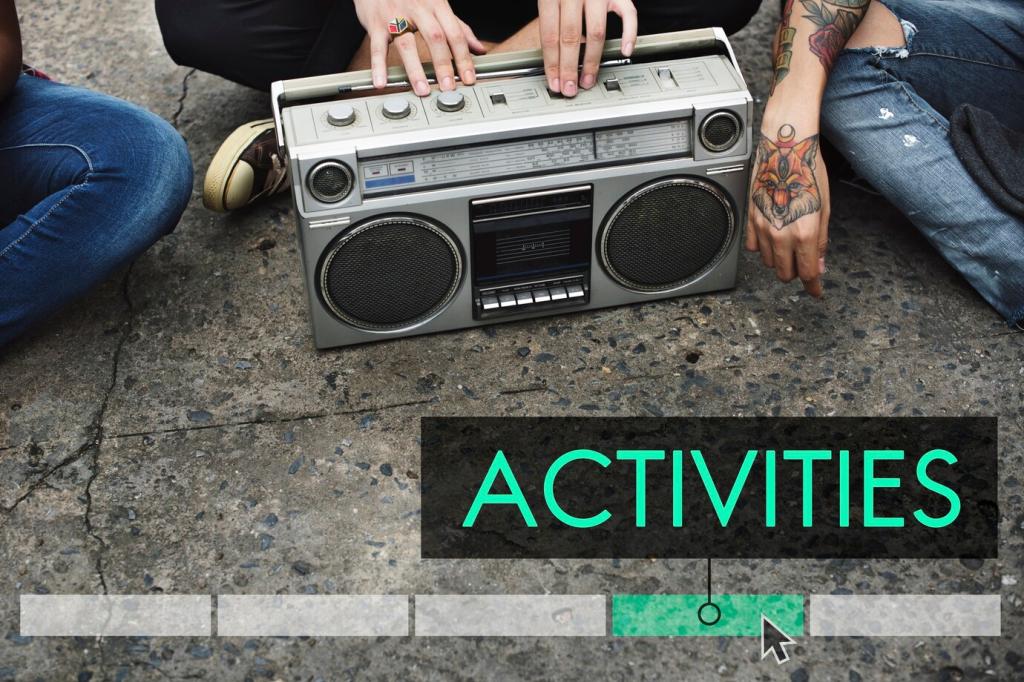
How Social Media Shapes the Way We Consume News
Chosen theme: Social Media’s Impact on News Consumption. Our feeds are the new morning paper, stitched from friends’ shares, algorithmic hunches, and viral moments. Today, we’ll unpack how platforms steer attention, what that means for truth and trust, and how you can take back control. Share your own feed habits and subscribe for weekly insights.


Algorithms as the New Front Page
Your feed is driven by signals like dwell time, shares, comments, watch duration, recency, and your past clicks. These metrics optimize for attention, not necessarily importance. Notice which stories linger at the top of your scroll today, and ask which signals lifted them there. Tell us what you found and how it shaped your mood.
Algorithms as the New Front Page
One morning, a local wildfire simmered on my feed beneath a celebrity divorce thread. The divorce post surged because it sparked jokes and quick comments; the wildfire needed time, context, and expert voices. Algorithms rewarded immediacy. Have you seen a crucial story buried beneath noise? Share the moment when engagement overshadowed urgency.
When Rumors Outrun Reporters
During a transit scare, a false rumor about citywide subway shutdowns sprinted across group chats before official updates landed. Commuters reshuffled plans, businesses opened late, and corrections arrived after panic had already settled. Have you acted on a breathless post that later unraveled? Tell us how it felt to undo those decisions.
Verification in the Age of Seconds
Journalists lean on reverse-image searches, geolocation clues, official statements, and community verification. You can, too. Check dates, look for original uploaders, and compare multiple sources before sharing. Small pauses save big headaches. Try a thirty-second verification ritual today and report back on how many posts failed your quick test.
Help Slow Down the Falsehoods
Do not reward misleading posts with engagement. Comment with a correction and link to trusted sources. If a friend shared a questionable claim, kindly ask for their source and offer alternatives. Your tone matters. Share the phrase you use to nudge conversations toward accuracy, and subscribe for templates you can adapt.
Echo Chambers and Filter Bubbles

Platforms learn your preferences and serve more of the same, shrinking the range of viewpoints you encounter. Over time, your sense of consensus can distort, making opposing views seem rare or hostile. Notice which voices you almost never see. Share one topic where your feed feels one-sided, and why that might be.
Citizen Journalism and Community Witness
During a neighborhood flood, a livestream mapped rising water minute by minute, helping residents plan safer routes. Local officials later used those clips to prioritize pumps. Citizen footage can save time and lives. If you have shared helpful on-the-ground updates, describe your approach and how you protected your privacy while filming.


Citizen Journalism and Community Witness
Blurring faces, avoiding victims’ private moments, and verifying context prevent harm. When in doubt, consult local guidelines, respect law enforcement perimeters, and avoid interfering with responders. Safety first, truth second, virality last. Share your personal rules for responsible posting during emergencies so others can learn and stay careful.

Newsrooms in a Platform World
Headlines lean toward clarity, emotion, and curiosity without crossing into clickbait. Visuals are optimized for vertical screens, and threads replace articles for breaking updates. This shift widens reach but can fragment context. Which news formats keep you reading thoughtfully? Share examples and tag outlets that balance speed with depth.
News Literacy for the Scroll
Use read-later apps and batch serious reading when you can think clearly. Headlines rarely contain enough context to inform decisions. Create a daily slot for deep reads away from notifications. Try it for three days and report whether your stress dropped or your understanding improved. Your routine might inspire others.
Before sharing, ask: Who is the author, what is their evidence, and where did the data originate? Look for original documents and multiple independent confirmations. Beware screenshots without links. Practice on today’s top post and share your verification path. Small rituals, repeated, build durable judgment in noisy environments.
Mute outrage-bait, prioritize explainers, and follow topical experts rather than generalist personalities. Use saved searches for ongoing stories and avoid reacting to anonymous accounts with no history. Post your feed-tuning checklist in the comments, and subscribe to get a printable version plus tools our readers swear by.




